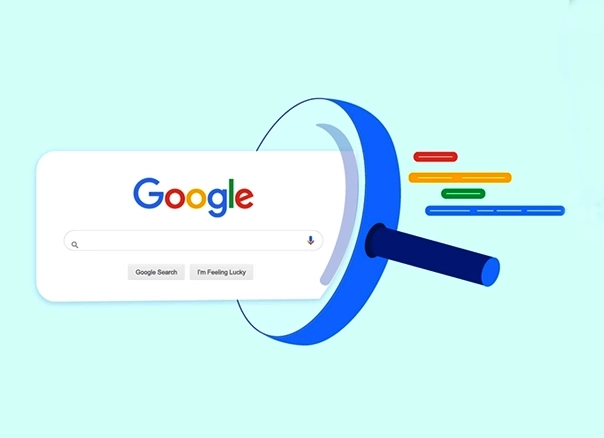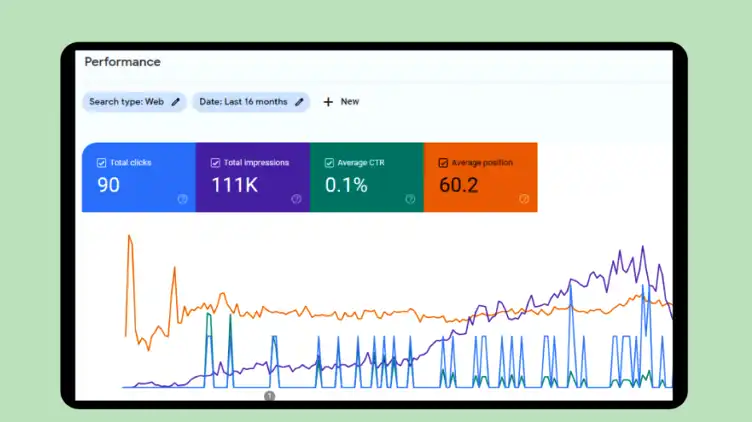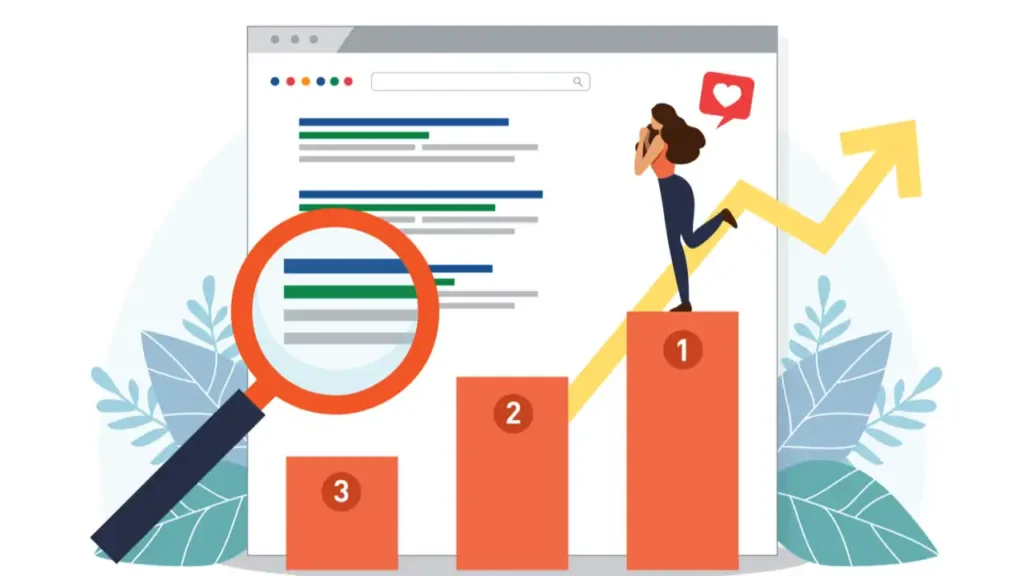Stop Wasting Time! Explore 16 Reasons Why Website Not Ranking on Google & How to Fix Them Fast
If your webpage is not appearing on Google’s search results, it can be quite frustrating. With the high level of competition on search engines, it can be difficult to understand why your page isn’t ranking well. In this blog post, we will explore the top 16 reasons why your Website Not Ranking on Google. We will explain each reason in simple terms so that even a 10-15-year-old Indian student can understand. By the end of this article, you will have a better understanding of how to troubleshoot and improve your website’s SEO ranking.

Identifying the Problem Why Your Website Not Ranking on Google:
If you’ve noticed that your page isn’t showing up on Google, it’s crucial to identify the underlying problem. Achieving a higher ranking on Google’s search results is important for attracting organic traffic to your website. To get started, you need to analyze factors such as content relevance, technical issues, and website accessibility.
By understanding why your page isn’t ranking well, you can make the necessary optimizations and adjustments to improve its visibility. This not only boosts your brand’s visibility and credibility but also helps you cater to user needs and stay ahead of your competitors. With continuous improvement and a targeted SEO strategy, you can increase your chances of ranking higher on Google and attracting more organic traffic to your website.
Start Investigation Using Google Search Console
Google Search Console is a powerful tool that allows website owners to track their website’s performance on Google’s search engine. By using this tool, you can identify issues that might be affecting your website’s visibility on search results pages.

To start your investigation, you need to log in to Google Search Console and review the data. Check for any crawl errors, broken links, or security issues that could be impacting your website’s indexability. Additionally, review the search analytics report to see how often your website appears in search results and what search queries people are using to find your website.
By using Google Search Console, you can gain valuable insights into your website’s performance and make necessary adjustments to improve its search engine visibility. With a thorough investigation and a targeted SEO strategy, you can optimize your website and improve its chances of ranking higher on Google’s search results pages.
Reasons Website Not Ranking on Google
To figure out why your Website Not Ranking on Google, start by using Google Search Console. This tool allows you to analyze errors, coverage, and other technical aspects of your website. It is an essential tool for identifying potential issues that might be affecting your rankings.
Website Not Ranking on Google: Technical issues:
1. Crawling blocks:
Sometimes search engines like Google may have trouble exploring or crawling your website. It’s important to ensure that your website doesn’t have anything that is hindering access to search engines. This can prevent the search engine from indexing and understanding your website’s content properly.
Checking for issues like incorrect redirects, broken links or errors in the robots.txt file can help improve visible outcomes by search engines. When you eliminate such issues, your website becomes easily accessible to search engines and has a higher chance of being properly indexed. This can help improve your website’s search engine ranking and overall visibility.
2. Indexing issues:
When it comes to having your website’s pages “indexed” in Google’s database, it is crucial to address any issues if there are fewer pages indexed than expected. This can have an impact on your website’s visibility and discoverability. By doing so, you can optimize your website for better indexing by search engines like Google. It’s important to provide clear, concise, and easy-to-understand content to enhance the user experience and improve your website’s chances of being properly indexed.
3. Internal links:
It’s important to regularly check that the links on your website are functioning properly and that the anchor text used for those links is relevant to the content it directs to. Broken or incorrect links can negatively impact the user experience and hinder the effective navigation of your website.
By ensuring that all links are working correctly and that the text used for the links accurately describes the destination content, you can improve the usability and credibility of your website. This will ultimately enhance the overall experience for your visitors and positively impact your website’s search engine optimization efforts.
4. Page Loading Speed:
If your website takes a long time to load, it can harm your website’s SEO ranking. That’s why it’s important to regularly evaluate your website’s page loading speed and make improvements where necessary. You can use free tools such as Google PageSpeed Insights to analyze your website’s loading speed and receive recommendations on how to improve it.
By optimizing elements like images, CSS code, and JavaScript code, you can significantly improve your website’s loading speed. This will ultimately enhance the user experience and improve your website’s search engine ranking.
5. Page Rendering:
Issues with page rendering can greatly impact how your website appears to users and can hamper their overall experience. To ensure your website renders correctly, it is crucial to ensure that your website’s code is accurate and functions properly across different browsers and devices.
Regularly test your website to identify any rendering issues or compatibility problems. This involves validating your code, optimizing HTML and CSS, and ensuring proper handling of JavaScript. By addressing these issues, you can improve the consistency and user-friendliness of your website, leading to a better user experience and increased user engagement.
Website Not Ranking on Google: Content reasons:
6. Cannibalization:
It is essential to avoid targeting the same keywords and audience with multiple pages on your website. This approach can lead to intense competition amongst your pages, ultimately negatively impacting your search engine rankings.
To avoid such a scenario, it is important to conduct comprehensive keyword research and develop a strategic content plan. The plan should aim to target different keywords and audiences with each page on your website.
By taking this approach, you can ensure that each page serves a unique purpose and complements each other instead of competing with each other. This will improve the overall quality and relevance of your website’s content, leading to better search engine rankings and a more positive user experience.
7. Content format:
To enhance user experience and engagement, it is beneficial to include a variety of content formats such as infographics, videos, and text-only articles. Infographics visually present complex information, videos add interactivity, and text articles provide in-depth analysis.
By diversifying content formats, you cater to different learning preferences and make your content more accessible to a wider audience. Optimizing each format ensures the best user experience, ultimately improving engagement and attracting more users.
8. Searcher intent/relevance:
Ensuring that your content aligns with user search queries is crucial for achieving better search rankings. It is important to provide relevant information that directly addresses what users are searching for. If your content does not meet their specific needs, it may not perform well in search rankings.
Therefore, it is essential to focus on creating valuable and relevant content that directly addresses the queries of your target audience. By doing so, you can improve your chances of ranking higher in search engine results and attract more organic traffic to your website.
9. Competitor content is better:
To improve search ranking, it’s important to analyze the content of websites that rank higher than your own. Identify their strengths and weaknesses, and use this information to make improvements to your content. Look for common themes and topics, as well as the tone and writing style of their content.
Pay attention to their use of keywords and phrases, and try to incorporate similar ones into your content. Additionally, you should aim to provide more comprehensive and valuable content than your competitors to surpass them in search rankings.
Ultimately, regularly analyzing your competitors’ content can help you keep up with the latest industry trends, and improve the overall quality of your content.
10. Poor optimization:
It is important to avoid certain SEO practices that can harm your search rankings. One such practice is keyword stuffing, which involves overusing keywords in an attempt to manipulate search rankings.
It is also important to use proper heading tags that accurately reflect the content on your page. Using irrelevant heading tags can confuse search engines and negatively impact your rankings.
Another harmful practice to avoid is engaging in black hat SEO tactics, such as link schemes and cloaking. Not only are these practices unethical, but they can also result in penalties or even being banned from search results.
By following ethical SEO practices and creating high-quality, valuable content, you can improve your search rankings and attract more organic traffic.
11. Uniqueness:
To improve your search rankings, it’s important to create unique content that provides valuable information to your audience. By offering something that sets your content apart from others, such as a new perspective or original research, you can increase the likelihood that others will link to your content and share it on social media.
This can lead to increased organic traffic and higher search rankings. Additionally, it’s important to create content that is easy to read and understand, with clear headings and subheadings that break up the text. By focusing on creating high-quality, valuable content, you can establish your website as a trusted and authoritative source in your industry, and attract more organic traffic over time.
12. Language:
Creating content that is easy to read and understand is crucial for its effectiveness. Poor readability and grammar can hinder the impact of your content. To enhance readability, consider using short sentences and paragraphs to break up the text.
Additionally, incorporating subheadings, bullet points, and numbered lists can make your content more scannable and digestible. It is also important to proofread your content carefully to ensure proper grammar and punctuation.
By presenting your information clearly and concisely, you can engage and hold the attention of your readers, making your content more effective in delivering its message.
13. Google Manual action:
It’s important to follow Google’s rules to keep your website in good Ranking. If you don’t, your site might be penalized, and this can lose its visibility. Google wants sites to be honest and provide useful information. They also want sites to be easy for people to use. If you break these rules, your site might not show up in search results. So, it’s best to stick to the guidelines, create helpful content, and make sure your site is user-friendly. This way, you’ll have a better chance of ranking well and attracting visitors.
Website Not Ranking on Google: Credibility reasons:
14. Links:
Including high-quality links on your website is important for improving your SEO. It’s best to avoid low-quality links that can harm your site’s search engine optimization. Instead, focus on obtaining links from reputable and authoritative sources that are relevant to your content.
These high-quality links can boost your website’s credibility and visibility in search results. By following this approach, you can enhance the user experience and ensure your content is easily accessible to both search engines and human readers.
15. E-A-T signals:
Google values expertise, authoritativeness, and trustworthiness (E-A-T) when evaluating web pages. It’s important to ensure that your content showcases these desirable qualities.
Firstly, provide accurate and reliable information that reflects your expertise in the subject matter. This helps establish your authority and builds trust with your audience.
Additionally, consider including credentials or qualifications to strengthen your credibility. It’s also helpful to have clear and transparent sourcing of information, citing reputable sources whenever possible.
By prioritizing E-A-T, you can create content that not only appeals to search engines but also offers value and reliability to your readers.
16. Algorithm reasons:
Google Algorithms for ranking websites are always changing. To keep your website’s ranking high, it’s important to stay up to date with these changes. You can do this by staying informed about the latest updates, adapting your SEO strategies accordingly, and following best practices, like optimizing for mobile devices, improving website speed, creating valuable content, and building authoritative links. By staying proactive and responsive to these changes, you can maintain good visibility for your website in search engine results.

Troubleshooting for ranking on Google and back your SEO success:
To troubleshoot and improve your ranking on Google, you can follow these simple steps:
- Identify the issues: Identify the potential technical, content, or user experience issues that can impact your SEO ranking. This can be done with SEO tools like Google Analytics, Ahrefs, or SEMRush.
- Prioritize Issues: Prioritize issues based on their potential impact on user experience. Technical issues that affect site speed, mobile responsiveness, and security should be addressed first.
- Regular Monitoring: Regularly monitor your website’s performance through Google Search Console to identify any unexpected issues that may arise.
- Make Improvements: Make improvements based on the identified issues. Optimize website speed, mobile responsiveness, and security. Fix broken links and eliminate duplicate content. Add relevant content and ensure proper use of keywords.
- Stay Updated: Stay updated with the latest SEO practices and algorithm changes to ensure your website remains optimized for search engine rankings over time.
Conclusion:
Improving your website’s SEO ranking can be a complex process, but by understanding the reasons behind your page’s poor performance and taking the necessary steps to address those issues, you can enhance your ranking on Google. Remember, stay committed to best practices and analyze your website’s performance regularly. With these efforts, you can strive for long-term growth and success in search engine rankings.


